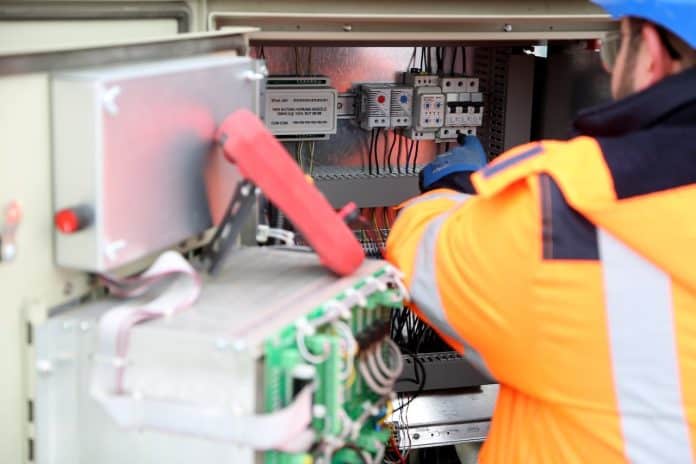
Are you an electrician looking to improve your craft and excel in electrical repairs? Look no further! This article will share several tips to help you master electrical maintenance like a pro. Whether you are a seasoned electrician or just starting, these tips will be helpful.
We have covered you, from troubleshooting common electrical problems to enhancing safety practices. We will delve into proper grounding techniques, effective wire splicing, and the importance of using the right tools and equipment as well as tips about how to grow your business. By following these expert tips, you will improve your efficiency and productivity and ensure the optimal functioning and longevity of electrical systems.
The Importance of Mastering Electrical Repairs
Electrical repairs are a crucial aspect of the work done by electricians. As an electrician, it is essential to master the art of electrical repairs to ensure the safety and functionality of electrical systems. By becoming proficient in electrical repairs, you can diagnose and fix issues efficiently, saving time and resources for you and your clients.
Moreover, mastering electrical repairs will enhance your reputation as a skilled and reliable electrician. Clients are more likely to trust an electrician who demonstrates expertise in their craft.
Essential Tools for Electrical Repairs
The right tools are essential for any electrician looking to excel in electrical repairs. Here are some must-have tools that will assist you in carrying out repairs effectively:
- Multimeter: A multimeter is a really versatile tool that measures various electrical parameters like voltage, current, and resistance. It is indispensable for diagnosing electrical issues accurately.
- Wire Strippers: Wire strippers remove the insulation from wires, enabling you to make proper connections. Invest in a high-quality wire stripper with multiple gauge options for versatility.
- Insulated Screwdrivers: Insulated screwdrivers are designed to protect you from electric shocks while working on live electrical components. Always use insulated screwdrivers to reduce the risk of accidents.
- Wire Cutters: Wire cutters are employed to cut wires cleanly and precisely. A good pair of wire cutters with sharp blades will make your wire-cutting tasks much more accessible.
- Tape Measure: A tape measure is really essential for accurately measuring distances and ensuring proper placement of electrical fixtures and outlets.
With these tools in your arsenal, you will be well-equipped to handle various electrical repairs.
Basic Electrical Safety Precautions
Safety should always be a top priority when working with electricity. Here are some basic electrical safety precautions that every electrician should follow:
- Turn Off Power: Before starting any electrical repair, always turn off the power at the circuit breaker or fuse box to prevent electric shocks.
- Wear Protective Gear: Wear personal protective equipment (PPE) such as insulated gloves, safety glasses, and flame-resistant clothing to protect yourself from potential hazards.
- Use Lockout/Tagout Procedures: When working on electrical systems, use lockout/tagout procedures to ensure that the power cannot be accidentally turned back on while working on the equipment.
- Avoid Overloading Circuits: Overloading circuits can lead to overheating and potential fire hazards. Make sure to distribute the electrical load evenly across courses to prevent overloading.
- Properly Ground Electrical Systems: Proper grounding is crucial for electrical safety. Ensure electrical systems are properly grounded to prevent electrical shocks and equipment damage.
Following these basic safety precautions can minimize the risks and ensure a safe working environment.

Understanding Electrical Circuits
To excel in electrical repairs, it is essential to have a good understanding of electrical circuits. Electrical circuits consist of different components, including power sources, conductors, switches, and loads.
A power source, such as a battery or electrical outlet, provides the energy needed to drive the electrical circuit. Conductors, such as wires, allow the flow of electric current without issue from the power source to the loads. Switches control the current flow within the course, while loads, such as light bulbs or appliances, consume the electrical energy.
To diagnose and repair electrical issues effectively, you must be able to identify the different components of a circuit and understand their functions. This knowledge will enable you to trace the current flow, identify potential faults, and make necessary repairs.
Troubleshooting Common Electrical Problems
Electrical systems can experience various issues, and as an electrician, it is essential to troubleshoot and resolve these problems efficiently. Here are some common electrical issues and tips for troubleshooting them:
- Frequent Circuit Breaker Tripping: If a circuit breaker trips frequently, it indicates an overloaded or short circuit. Start by identifying the cause of the overload or the short course, then take appropriate measures to rectify the issue.
- Intermittent Power Outages: Intermittent power outages can be caused by loose connections or faulty wiring. Inspect the wiring connections and then look for any signs of damage. Tighten loose connections and replace faulty wiring to restore power.
- Faulty Outlets or Switches: If an outlet or switch stops working, it could be due to a loose connection or a defective component. Check the wiring connections and replace damaged outlets or switches to restore functionality.
- Dimming or Flickering Lights: Dimming or flickering lights can be provoked by issues with the electrical circuit or the light fixtures themselves. Inspect the circuit connections and replace faulty light fixtures or bulbs to resolve the issue.
By systematically troubleshooting these common electrical problems, you can identify the root cause and implement effective solutions, ensuring the proper functioning of electrical systems.
Handling Electrical Emergencies
Electrical emergencies can occur unexpectedly and require immediate attention. As an electrician, it is crucial to be prepared to handle such situations safely and efficiently. Here are some tips for handling electrical emergencies:
- Call for Help: In case of a severe electrical emergency, such as a fire caused by electrical issues, call the emergency services immediately. Do not attempt to handle the situation alone if it poses a significant risk.
- Shut Off Power: If safe, shut off the power at the circuit breaker or fuse box to prevent further damage or accidents.
- Use Insulated Tools: When dealing with electrical emergencies, always use insulated tools to minimize the risk of electric shocks.
- Evacuate if Necessary: If the electrical emergency threatens your safety or the safety of others, evacuate the area and wait for professional help to arrive.
Remember, electrical emergencies require caution and expertise. It is best to seek professional assistance if you need help handling a particular situation.
Upgrading Electrical Systems and Installations
As an electrician, staying updated with the latest advancements in electrical systems and installations is vital. Upgrading outdated electrical systems not only improves their efficiency but also enhances safety. Here are some tips for upgrading electrical designs and facilities:
- Replace Old Wiring: Over time, wiring can deteriorate, leading to potential hazards. Inspect older electrical systems and replace outdated or damaged wiring to ensure safety.
- Install Surge Protectors: Surge protectors help guard against power surges that can damage sensitive electrical equipment. Install surge protectors in homes and commercial buildings to protect valuable electronics.
- Upgrade to LED Lighting: LED lighting is energy-efficient and provides better lighting quality. Encourage clients to upgrade their lighting systems to LED for reduced energy consumption and cost savings.
- Install Ground Fault Circuit Interrupters (GFCIs): As you may know, GFCIs are designed to protect against different electrical shocks. You should install GFCIs in areas where water is present, such as kitchens and bathrooms, to enhance electrical safety.
By offering upgrade services and staying updated with the latest electrical technologies, you can provide added value to your clients and ensure their electrical systems are up to code.

Tips for Efficient Electrical Repairs
Efficiency is truly vital when it comes to electrical repairs. Here are some tips to help you carry out repairs more efficiently:
- Plan and Organize: Before starting a repair job, plan and organize your approach. Gather all the necessary tools and materials, and ensure you clearly understand the problem at hand.
- Work Methodically: Follow a systematic approach when conducting repairs. Start by identifying the issue, diagnose the root cause, and implement the necessary repairs.
- Keep a Clean Workspace: A cluttered workspace can hinder your efficiency. Keep your work area clean and organized to minimize distractions and make finding the tools and materials more accessible.
- Continuously Learn and Improve: Stay updated with industry practices and techniques. Attend workshops, seminars, or online courses to expand your knowledge and improve your skills.
By implementing these tips, you can complete electrical repairs more efficiently, saving time and effort.
Professional Development for Electricians
Continuing professional development is crucial for electricians who want to excel in their field. Here are some ways to further your professional development:
- Attend Industry Conferences: Industry conferences provide an excellent opportunity to network with fellow professionals, learn about the latest trends, and gain good insights from industry experts.
- Join Professional Associations: Professional associations allow you to connect with other electricians and stay informed about industry updates and advancements.
- Seek Mentorship: You should find a mentor who can guide you and offer valuable insights based on their experience in the field. A mentor can really help you navigate challenges and accelerate your professional growth.
- Stay Updated with Codes and Regulations: Familiarize yourself with all the latest electrical codes and/or regulations to ensure your work complies with the required standards.











































